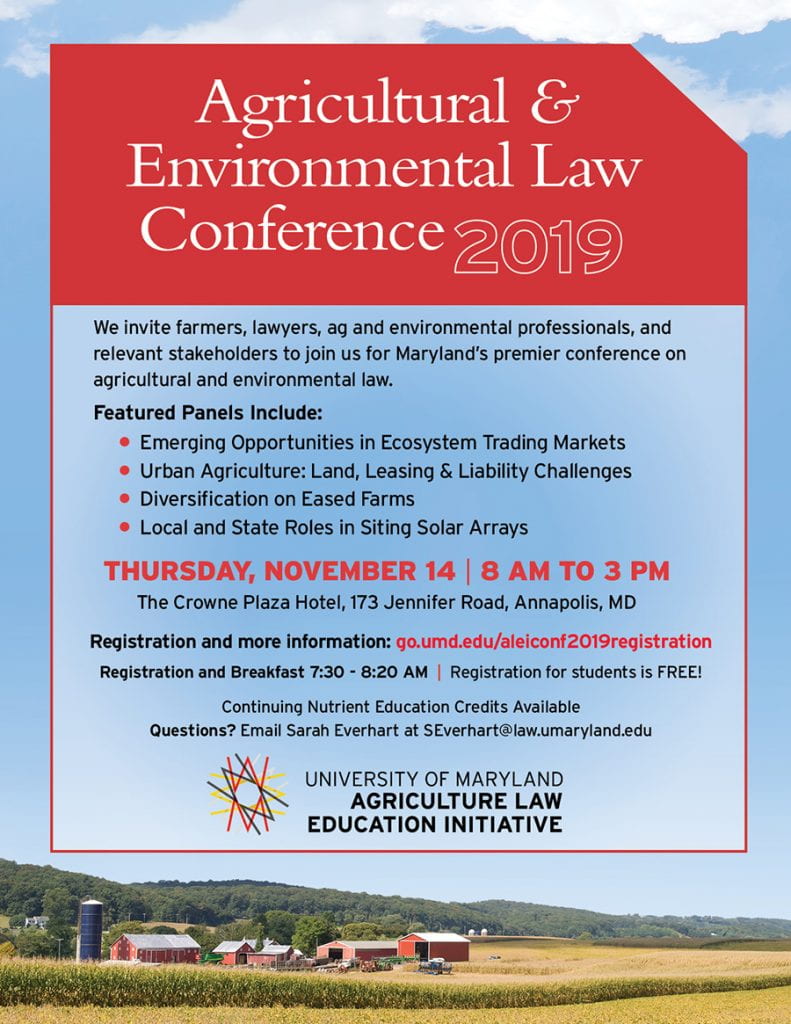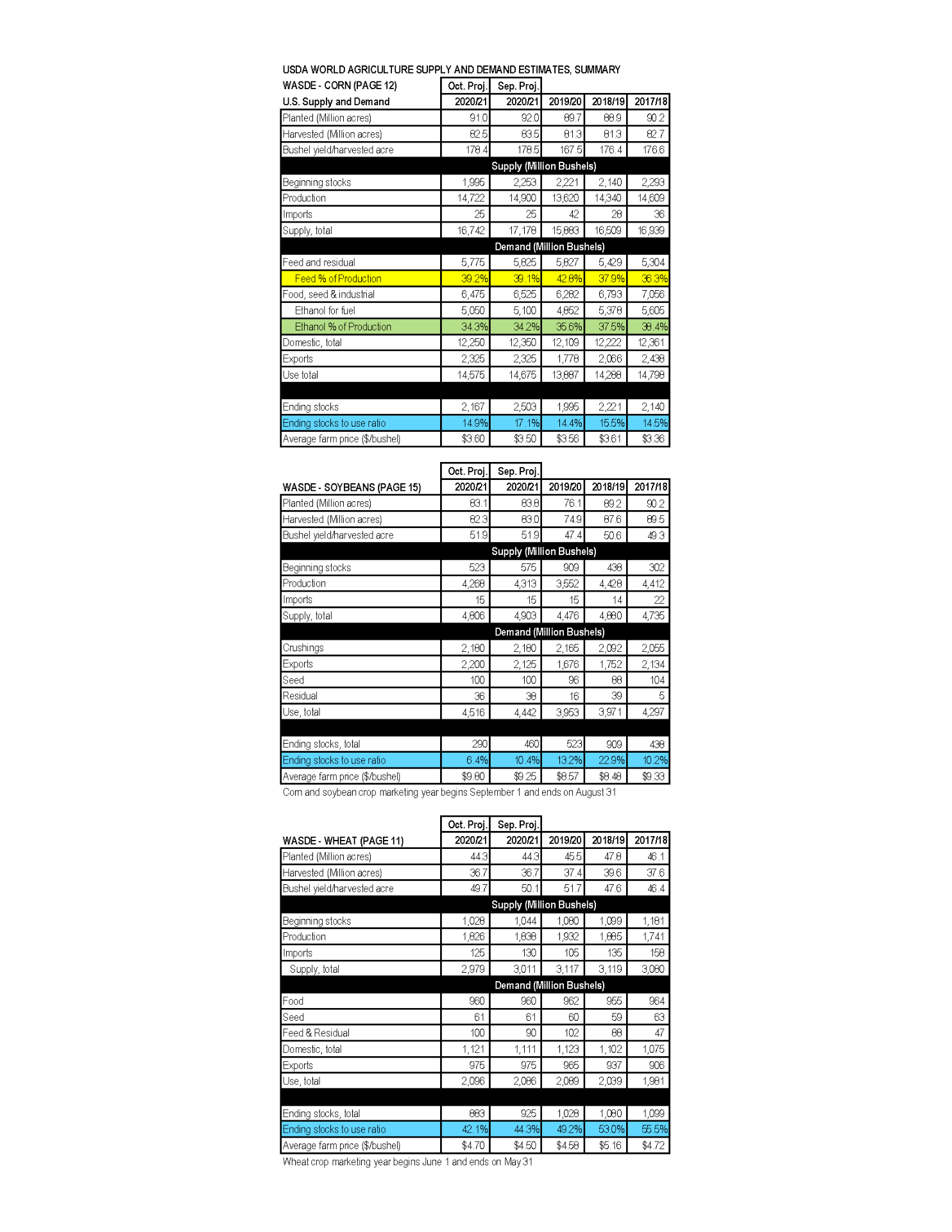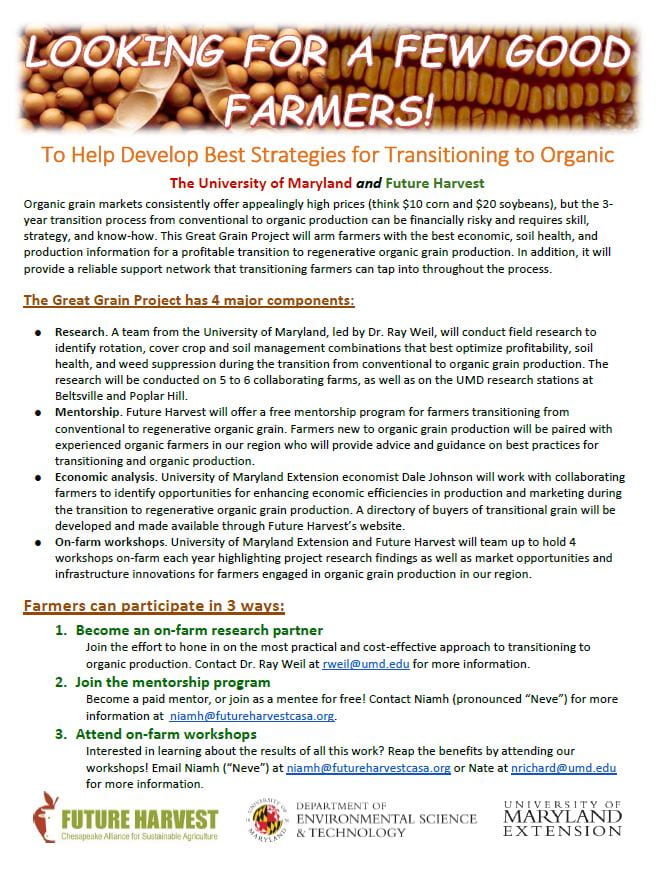
Hosted by the Agriculture Law Education Initiative (ALEI), the Agriculture and Environmental Conference will bring agricultural, environmental, and legal professionals together to discuss timely and relevant legal issues that farmers face on a daily basis. Topics at the November 14 conference include: land use and liability for urban farmers; developing issues in agricultural and environmental law; diversifying uses on farms with conservation easements; local and state roles in siting approval of solar energy facilities; and maintaining neighbor relations when legal issues arise. Nutrient Management Continuing Learning Education Credits are available for those attending!
Instead of a keynote speaker, this year’s conference will feature a keynote panel on the emerging opportunities for farmers and aquaculture growers in ecosystem trading markets. The panel will feature experts in water, air, and soil quality trading systems to explain the current state of these opportunities and how producers can prepare themselves to participate, including: Pipa Elias, Director, North America Agriculture Program, The Nature Conservancy; Dr. Lisa Wainger, Research Professor, University of Maryland Center for Environmental Science, Suzanne Dorsey, Assistant Secretary, Maryland Department of Environment’s Assistant Secretary, and Matthew Clagett, Assistant Attorney General, Maryland Department of Environment. This panel, like others at the conference, is an opportunity to spark conversations between different stakeholders about how best to protect agriculture and natural resources in Maryland.
The ALEI team has worked to ensure the conference evokes a lively discussion and advances the dialogue about the natural resource protection laws affecting Maryland’s farmers. The conference is geared toward members of the agriculture community, including farmers, agricultural and environmental attorneys, regulators, agriculture professionals, environmental associations, and elected officials. Students may attend for free if they bring a valid student identification card.
The conference will be held on Thursday, November 14, 2019 from 8 am – 3 pm at the Crowne Plaza Annapolis, 173 Jennifer Rd, Annapolis, MD 21401. Registration opens at 7:30 am.
For more information or to register, please visit https://go.umd.edu/aleiconf2019registration.



